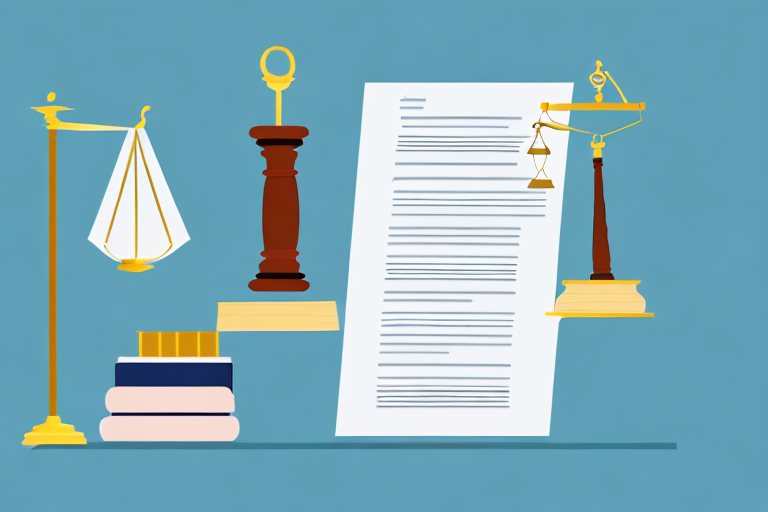In today’s digital age, safeguarding your assets goes beyond physical possessions and financial investments. With the rise of technology and online platforms, it is equally important to protect your digital assets through an online will. Understanding the importance of a digital will is crucial in ensuring that your digital assets are handled as per your wishes after your passing.
Understanding the Importance of a Digital Will
The concept of digital assets has become increasingly relevant in recent years. The online world has transformed the way we store and access valuable information, from personal photos and videos to social media accounts and wills online. Recognizing the significance of these assets and making provisions for their management in your will is essential to avoid potential complications and disputes in the future.
The Rise of Digital Assets
Digital assets encompass a broad range of items that hold value in the online realm. These can include social media accounts, cryptocurrencies, investments made in digital platforms, and personal digital content, such as photographs, videos, and documents. The ever-expanding digital landscape has given rise to the need for specific measures to address the handling and distribution of these assets.

One of the most significant aspects of the rise of digital assets is the increasing prevalence of cryptocurrencies. These digital currencies, such as Bitcoin and Ethereum, have gained popularity as alternative forms of investment and transaction. In a digital will, you can specify how your cryptocurrencies should be managed and transferred, ensuring that your loved ones have access to these valuable assets.
Furthermore, the proliferation of social media platforms has led to the creation of a significant digital presence for many individuals. Facebook, Instagram, Twitter, and other platforms have become repositories of memories, connections, and personal narratives. In your digital will, you can outline your preferences for the management of your social media accounts, allowing your loved ones to preserve your online legacy or close the accounts as per your wishes.
Why You Need a Digital Will
Without a digital will, your loved ones may encounter significant challenges in accessing and managing your digital assets after your passing. Many online platforms have their own policies and terms of service that dictate what happens to an account when the user is no longer alive. In some cases, without proper documentation and authorization, it may be impossible for your family to gain access to your accounts, leaving valuable assets in digital limbo.
Creating a digital will ensures that your wishes are known and respected, and your assets are handled according to your instructions. By clearly outlining your preferences for each digital asset, you can provide guidance to your loved ones and minimize the potential for disputes or confusion. Additionally, a digital will can help prevent identity theft or unauthorized access to your accounts, providing an extra layer of protection for your digital legacy.
It is important to note that a digital will should be regularly updated to reflect any changes in your digital asset portfolio. As new technologies and platforms emerge, it is crucial to review and revise your digital will to ensure its relevance and effectiveness. By staying proactive in managing your digital assets, you can maintain control over your online presence even after you are gone.
What Constitutes a Digital Asset?
Knowing exactly what qualifies as a digital asset is critical when creating your online will. Here are some of the main categories of digital assets that you should consider:
Social Media Accounts
Social media has become an integral part of our lives, allowing us to connect with others, share memories, and express ourselves. Including instructions for your social media accounts in your digital will can help prevent unauthorized access and ensure that your accounts are either deactivated or memorialized per your wishes.
When it comes to social media accounts, it’s not just about the platforms themselves. It’s also important to consider the content you have shared over the years. Your posts, photos, and videos may have sentimental value to your loved ones. By including instructions on how to access and preserve this content, you can ensure that your digital presence is handled in a way that aligns with your wishes.
Additionally, social media accounts may contain sensitive information, such as personal messages or financial details. By addressing these accounts in your digital will, you can provide guidance on how to handle and protect this information, ensuring that your privacy is maintained even after you’re gone.
Digital Currencies and Investments
Investments made in digital currencies, such as Bitcoin, and other online investment platforms need to be addressed in your digital will. Providing clear instructions on how to access, manage, or transfer these assets will help avoid potential loss or mismanagement.
Digital currencies have gained significant popularity in recent years, and many individuals have invested substantial amounts of money in these assets. However, unlike traditional bank accounts or physical assets, digital currencies can be challenging to manage or access without the necessary information. By including specific instructions in your digital will, you can ensure that your loved ones are able to navigate the complexities of digital currencies and safeguard your investments.
Furthermore, it’s important to consider other online investment platforms or accounts that you may have. Stocks, bonds, or other financial instruments held digitally should be included in your digital will to provide guidance on how to handle these assets. By doing so, you can help protect your financial legacy and ensure that your investments continue to be managed effectively.
Personal Digital Content
Your personal digital content, including photographs, videos, and important documents, may hold immense sentimental or financial value. Designating who can access or inherit these files in your digital will ensures that they are preserved and shared with your chosen beneficiaries.
In today’s digital age, we capture countless moments through photos and videos. These visual memories often hold great emotional significance and can serve as a way to remember and celebrate the life we have lived. By including instructions on how to access and preserve your personal digital content, you can ensure that your loved ones have the opportunity to cherish these memories and pass them down to future generations.
Moreover, personal digital content may also include important documents, such as legal contracts, financial statements, or even creative works. By addressing these assets in your digital will, you can provide clarity on how they should be managed and utilized. This can be particularly crucial in cases where your digital content holds financial value, as it ensures that your beneficiaries are aware of its existence and can take appropriate steps to protect and leverage these assets.

The Legal Landscape of Digital Wills
As digital assets continue to evolve, so does the legal framework surrounding them. Understanding the current laws and regulations related to digital wills is crucial in ensuring that your wishes are legally enforceable.
In recent years, the rise of digital technology has brought about significant changes in how people manage their assets. From cryptocurrencies and online bank accounts to social media profiles and digital art collections, individuals now possess a wide range of digital assets that hold both financial and sentimental value. As a result, lawmakers around the world have been grappling with the challenge of adapting traditional estate planning laws to encompass these new forms of property.
Current Laws and Regulations
While the legal landscape may vary depending on your jurisdiction, many countries have begun recognizing digital wills as valid legal documents. These countries have enacted legislation or established legal precedents to address the unique nature of digital assets and provide a framework for their distribution after death.
For example, in the United States, the Uniform Fiduciary Access to Digital Assets Act (UFADAA) has been adopted by most states. This act grants executors and trustees the legal authority to access and manage a deceased person’s digital assets, provided certain conditions are met. Similarly, the European Union’s General Data Protection Regulation (GDPR) includes provisions that allow individuals to specify how their digital assets should be handled after their death.
Staying informed about the specific laws that apply to your location and seeking legal advice will ensure that you create a digital will that complies with all necessary regulations. Consulting with an estate planning attorney who specializes in digital assets can help you navigate the complexities of the legal landscape and ensure that your digital will accurately reflects your intentions.
Potential Legal Challenges
Despite the progress in recognizing digital wills, there may still be potential legal challenges that arise in the future. These challenges can stem from issues such as conflicting laws, disputed ownership of digital assets, or the lack of specific legislation.
One potential challenge is the conflict between different jurisdictions. In an increasingly connected world, individuals may own digital assets in multiple countries, each with its own laws governing inheritance and property rights. Determining which jurisdiction’s laws apply to a particular digital asset can be a complex task and may require legal expertise.
Another challenge arises from the nature of digital assets themselves. Unlike physical assets, digital assets can be easily duplicated, modified, or deleted. This raises questions about the authenticity and integrity of digital assets when it comes to executing a digital will. Ensuring that your digital assets are properly secured and that there are mechanisms in place to verify their authenticity can help prevent disputes and legal challenges.
Furthermore, the lack of specific legislation addressing digital assets in some jurisdictions can create uncertainty and ambiguity. In the absence of clear guidelines, courts may struggle to interpret and enforce digital wills, leading to prolonged legal battles and potential challenges to the validity of the document.
Preparing for such scenarios and addressing them in your digital will can help minimize potential conflicts. Including detailed instructions on how your digital assets should be accessed, managed, and distributed can provide clarity and reduce the likelihood of disputes among your beneficiaries.
In conclusion, the legal landscape of digital wills is constantly evolving as lawmakers strive to adapt to the digital age. Staying informed about the current laws and potential challenges surrounding digital assets is essential for creating a comprehensive and legally enforceable digital will.

Creating Your Online Will
Creating an online will ensures that your digital assets are protected and distributed according to your wishes. Follow these steps to create your digital will:
Choosing the Right Online Will Service
There are numerous online will services available that provide platforms for creating and storing digital wills. Research different options to find a reputable and secure service that aligns with your needs and offers the necessary features to safeguard your digital assets.
Steps to Creating an Online Will
- Start by organizing a comprehensive list of your digital assets, including login credentials and relevant details.
- Identify your digital beneficiaries and clearly outline their rights and responsibilities regarding your digital assets.
- Use the online will service’s templates or interfaces to structure your digital will in a legally sound manner.
- Ensure that your digital will includes instructions regarding access to your digital assets and the desired actions to be taken, such as transferring ownership or deleting accounts.
- Review and revise your digital will regularly to keep it up to date with any changes in your digital assets or personal circumstances.
Ensuring the Security of Your Digital Will
Protecting your digital will from cyber threats and ensuring its integrity is paramount in safeguarding your digital assets. Here are some measures you can take to enhance the security of your digital will:
Protecting Your Online Will from Cyber Threats
Choose a secure online will service that encrypts your data and follows stringent security protocols. Additionally, consider using two-factor authentication and robust passwords to protect your account from unauthorized access.
Regular Updates and Maintenance
Keep your digital will up to date by regularly reviewing and revising it. This includes updating your list of digital assets, reviewing your designated beneficiaries, and ensuring that your instructions are still valid. Regular maintenance ensures that your digital will accurately reflects your wishes and minimizes potential conflicts.
By taking the necessary steps to safeguard your digital assets with an online will, you can ensure that your digital legacy is preserved and managed according to your wishes. Stay informed, seek legal advice when necessary, and utilize secure online platforms to protect your valuable digital assets for future generations.




